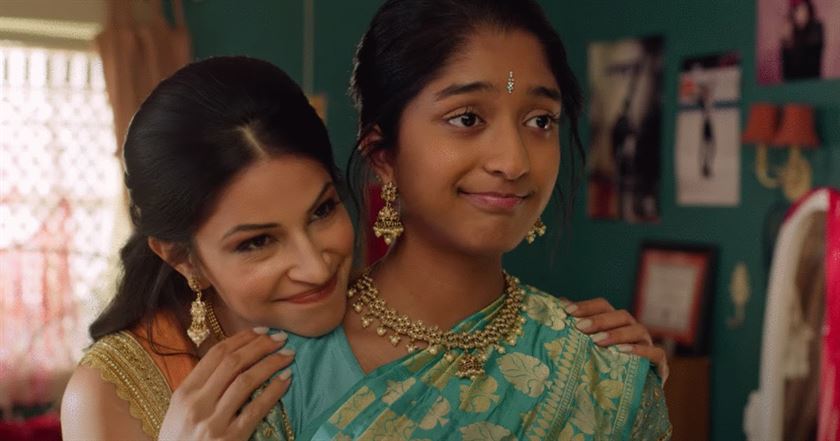Mindy Kaling and Lang Fisher’s new show, “Never Have I Ever,” brings western diaspora representation through the imperfect Indian American teenager, Devi Vishwakumar.
Devi, played by Maitreyi Ramakrishnan, is a selfish, bold, unapologetic, horny, mess of a teenager who also struggles with her Indian identity, school life and complex relationships with her mother and cousin.
The show has classic comedic tropes such as boy troubles and friend drama, but the highlight of the show is Devi’s experience with her “Indianness” and how it’s connected to every aspect of her life.
As someone who is a part of the South Asian western diaspora, the show hits home with Devi’s thought processes and experiences with identity. In the episode “…felt super Indian,” directed by Linda Mendoza and written by Kaling, Devi and her family celebrate Ganesh Puja, a celebration to honor the Hindu elephant god.
I watched the last episode of Never Have I Ever with a robot incapable of emotion and we both couldn't stop crying.
— Netflix India (@NetflixIndia) May 21, 2020
Devi questioned an old friend she ran into at the celebration for his attendance to the “lame fest” and claims that when she goes to Princeton, she will be “an atheist who eats cheeseburgers all day with my white boyfriend.”
It was not a proud moment for Devi as she seems ashamed, saying this after her friend admits that he enjoyed Ganesh Puja. The scene depicted a reality that many in the diaspora face, as they seek to fit into America through assimilation and internalized embarrassment of their identity. However, it’s important to keep in mind that not all of those in the diaspora experience this.
Through the series, Kaling reflects on her own experiences from her childhood. She is able to portray the complexities of her Indian American identity without making the characters one-dimensional.
Her story may not resonate with every Indian American and many may have critiques about the show. Devi has many privileges that the average American does not have. She’s wealthy, goes to a good public school and her family is elitist.

Devi Vishwakumar (Maitreyi Ramakrishnan) finally gets her chance to hook up with the hottest guy in school, Paxton Hall-Yoshida (Darren Barnet). Photo courtesy of Netflix.
Although it is not a perfect representation, one show can’t perfectly capture all the complexities of all Indian American experiences. “Never Have I Ever” portrays a small piece of the collective Indian American experience and gives those hope for more to come. It’s important to remember that we continue to critique media aiming for representation in order to be accurate.
Overall, the show is not perfect and has some cringey moments, such as Devi dreaming that her crush would call her Priyanka Chopra, supporting the idea that all Asians look the same or knowingly trying to date a closeted gay classmate for social points. It also follows many stereotypes of Asian women; Devi is a nerd, her mother is strict and her cousin is anticipating an arranged marriage.
Besides these critiques, the show captures one of the many untold experiences of the Asian western diaspora and is an extraordinary leap for Asian American storytelling. Besides the “Indianness” dilemma Devi faces, the overall plot focusing on friendship, family relations, grief and the loss of innocence makes the show incredibly fun to watch.



